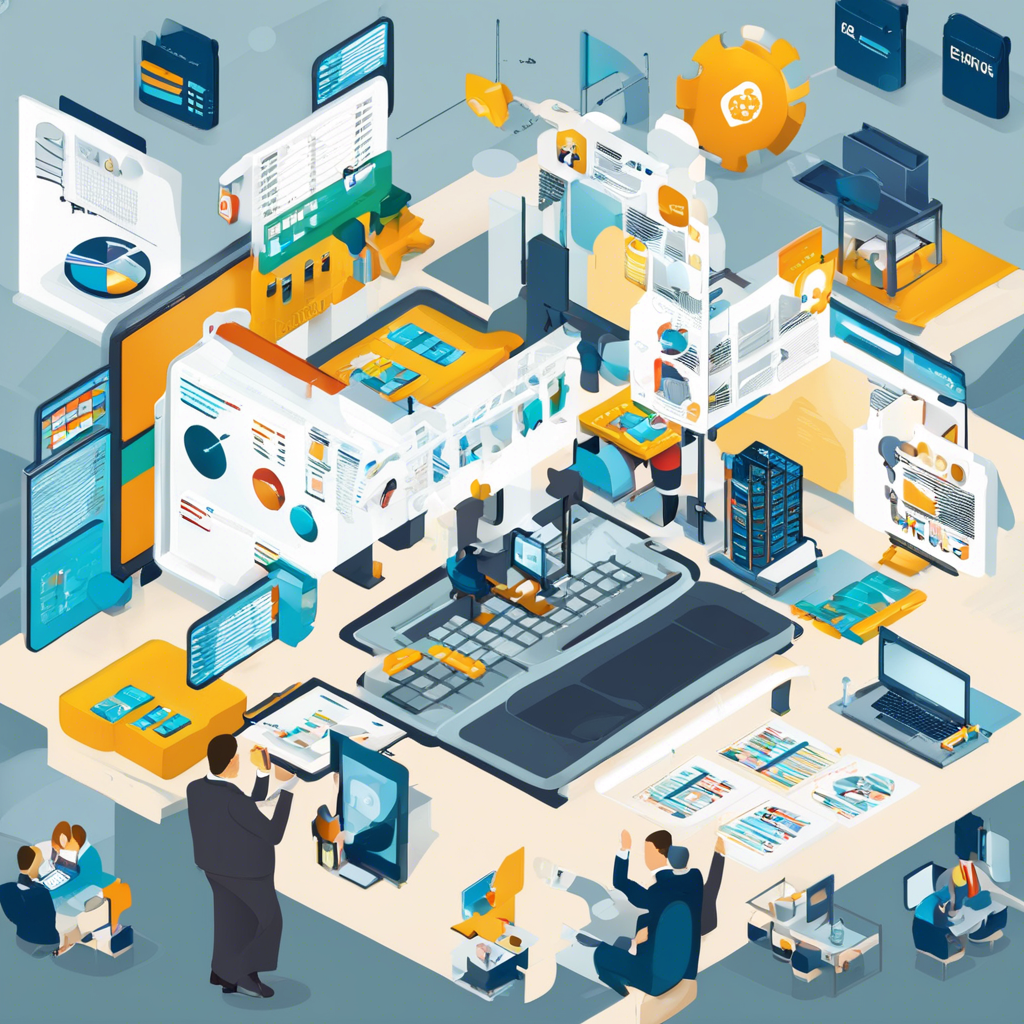Enterprise resource planning (ERP) software is a powerful tool that helps organizations manage their resources efficiently. It integrates various functions such as finance, human resources, supply chain, and customer relationship management into a single system. With ERP software, businesses can streamline their operations, improve decision-making, and enhance overall productivity.
One of the key benefits of using ERP software is the integration of data across different departments. This allows for real-time access to information, enabling employees to make informed decisions quickly. By having a centralized database, organizations can eliminate data redundancy and ensure data accuracy.
ERP software also helps in automating routine tasks, reducing manual errors, and increasing operational efficiency. Tasks such as invoicing, payroll processing, and inventory management can be automated, saving time and resources for the organization. This automation leads to cost savings and improved profitability.
Another advantage of ERP software is its ability to provide insights through advanced reporting and analytics tools. Organizations can generate custom reports, track key performance indicators, and analyze data trends to make data-driven decisions. This helps in identifying areas for improvement and optimizing processes.
Moreover, ERP software promotes collaboration among different departments by providing a unified platform for communication and sharing information. It breaks down silos and fosters teamwork, leading to better coordination and alignment across the organization. This collaboration improves overall organizational efficiency.
Security is a crucial aspect of ERP software, as it deals with sensitive business data. ERP systems come with robust security features such as user authentication, data encryption, and access controls to protect data from unauthorized access. This ensures data integrity and confidentiality.
Scalability is another important feature of ERP software, allowing organizations to adapt to changing business needs and scale their operations as they grow. Whether it’s adding new users, expanding into new markets, or incorporating new functionalities, ERP systems can accommodate these changes seamlessly.
Furthermore, ERP software enhances customer satisfaction by providing better service and support. With a unified view of customer data, organizations can personalize interactions, anticipate customer needs, and deliver superior customer experiences. This leads to increased customer loyalty and retention.
Implementation of ERP software requires careful planning and execution to ensure successful adoption. Organizations need to define their objectives, select the right ERP system, train employees, and monitor progress regularly. Effective implementation is key to maximizing the benefits of ERP software.
Despite its numerous advantages, ERP implementation can face challenges such as resistance from employees, data migration issues, and customization complexities. It is essential for organizations to address these challenges proactively and seek support from ERP vendors or consultants if needed.
In conclusion, enterprise resource planning software is a valuable tool for organizations looking to streamline their operations, improve efficiency, and drive growth. By integrating various functions into a unified system, ERP software enables organizations to make informed decisions, enhance collaboration, and deliver exceptional customer experiences. With careful planning and implementation, ERP software can revolutionize the way businesses operate in today’s competitive landscape.
